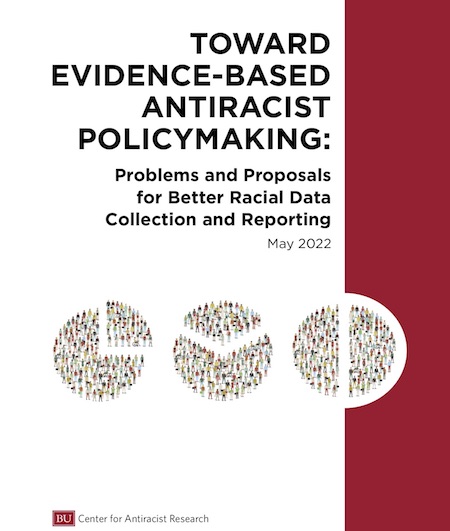 A new report from the Center for Antiracist Research at Boston University aims to highlight the nation’s race and ethnicity data shortcomings — and offers solutions for fixing them. The report, “Toward Evidence-Based Antiracist Policymaking: Problems and Proposals for Better Racial Data Collection and Reporting,” emphasizes the need for a robust and standardized system of racial data collection and reporting.
A new report from the Center for Antiracist Research at Boston University aims to highlight the nation’s race and ethnicity data shortcomings — and offers solutions for fixing them. The report, “Toward Evidence-Based Antiracist Policymaking: Problems and Proposals for Better Racial Data Collection and Reporting,” emphasizes the need for a robust and standardized system of racial data collection and reporting.
The report notes that existing race and ethnicity data collection efforts are riddled with gaps and errors, including missing and incomplete data, insufficiently disaggregated data, lack of meaningful longitudinal data, infrequently updated data, non-standardized methodologies, and other problems. These issues make it more difficult to understand where and how racism manifests, which hampers the creation of evidence-based, antiracist policy responses.
“Tracking data is not the only way to do this work, but data is a powerful tool that can reveal many effects of racism, including through the study of racial and ethnic disparities in access to resources and exposure to harms. This is why it is so important to start with good data,” explains Neda Khoshkhoo, lead author of the report and associate director of policy at the Center for Antiracist Research.
Professor Jasmine Gonzales Rose, one of the co-authors, adds that “the collection of racial demographic data is essential to track and respond to racism in our society – without racial data, there is an erasure of racial disparities. We simply need racial data to root out racial injustice.”
The report recommends the government use financial incentives to nudge states and localities into timely and accurate data collection, create an external oversight board to make sure data is used responsibly, and to monitor noncompliance, and review and update current race and ethnicity data standards.












